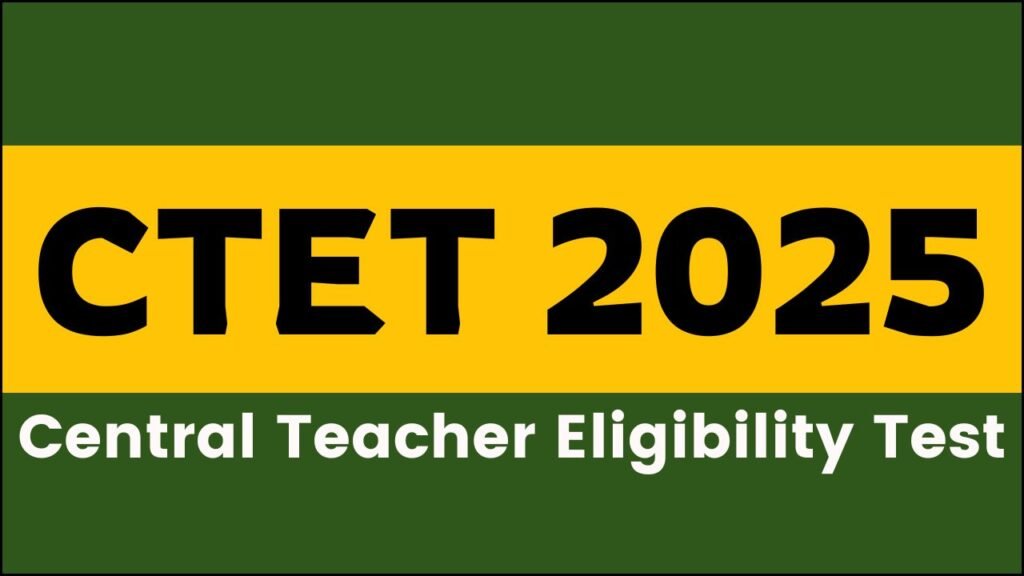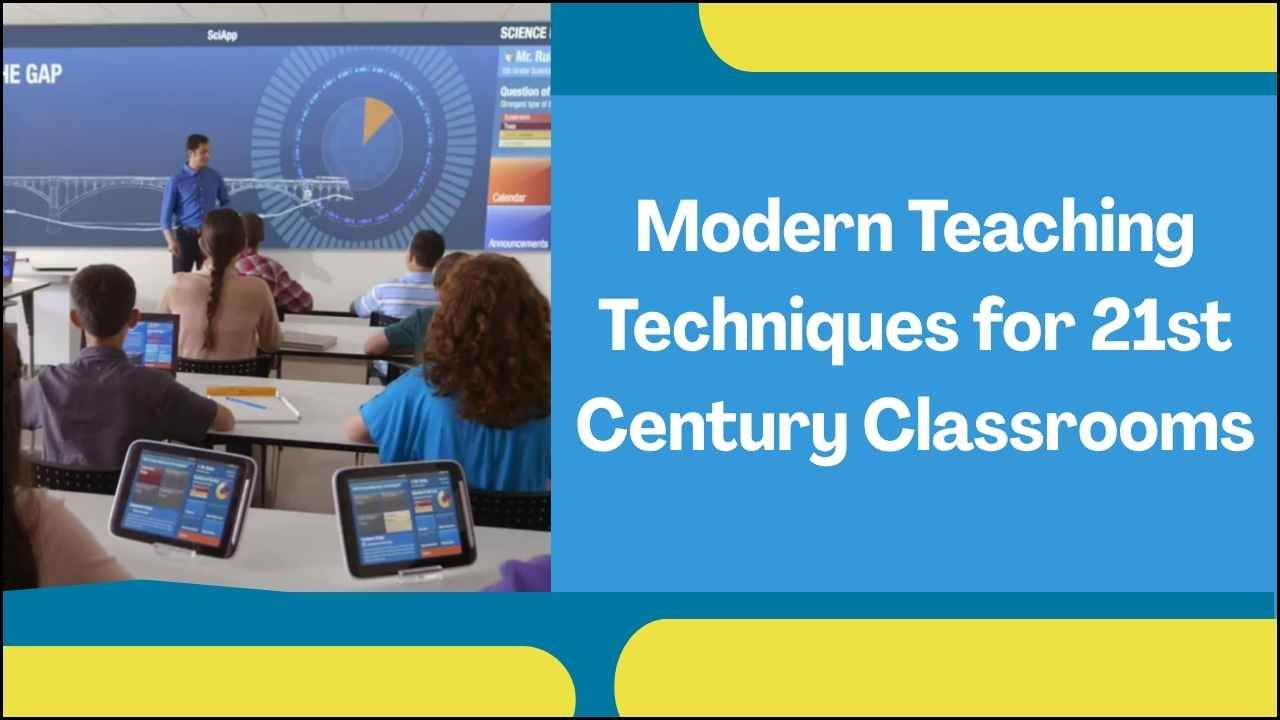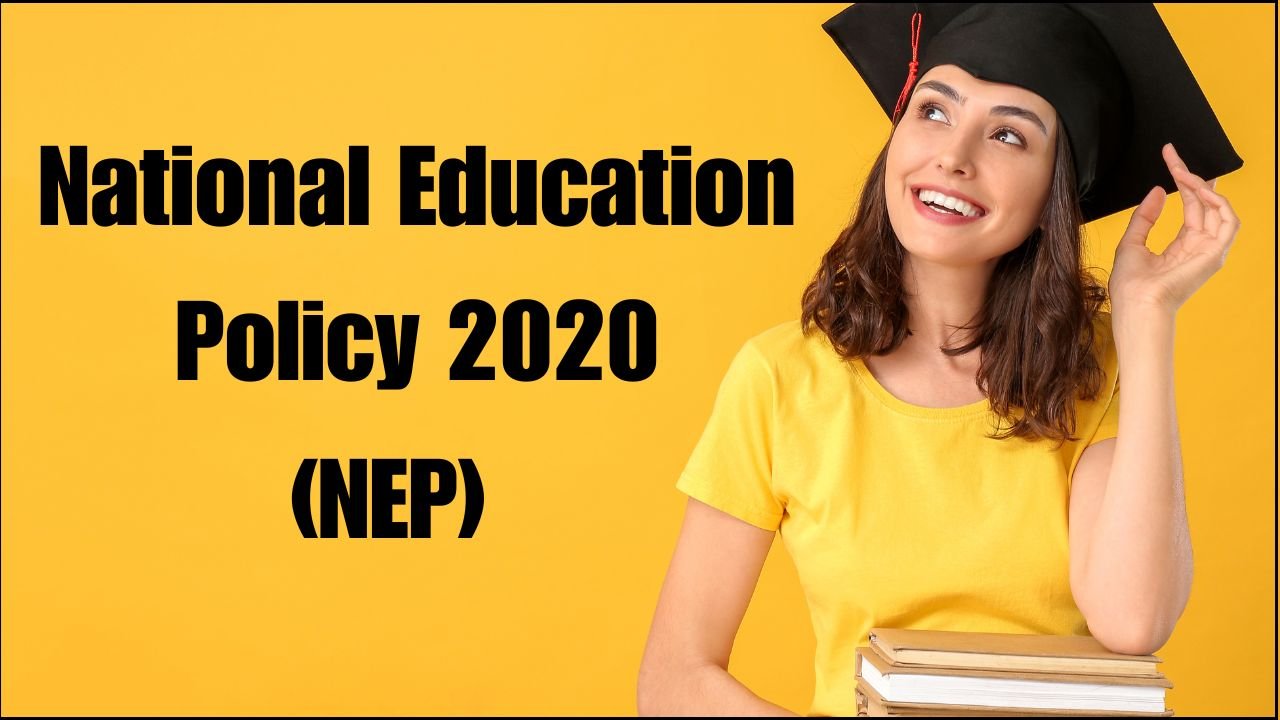
CTET 2025 is an important examination for people who want to become teachers in India. It is conducted by the Central Board of Secondary Education (CBSE). The exam helps check whether a person is qualified to teach in central government schools like Kendriya Vidyalayas and Navodaya Vidyalayas. Many private schools also consider CTET scores for recruitment. The exam is held twice a year and has two papers – Paper I for primary level teachers (Class I to V) and Paper II for upper primary level teachers (Class VI to VIII).
Table of Contents
Key Highlights of CTET 2025
- Conducting Body: Central Board of Secondary Education (CBSE)
- Exam Level: National
- Exam Mode: Offline (Pen and Paper-based)
- Frequency: Twice a year (July and December)
- Validity of Certificate: Lifetime
- Language Options: 20 languages, including Hindi and English
Eligibility Criteria for CTET 2025
Paper I (Primary Teacher – Class I to V)
Applicants must meet one of the following:
- Senior Secondary with 50% marks and passed or appearing in the final year of a 2-year Diploma in Elementary Education.
- Senior Secondary with 45% marks and passed or appearing in the final year of a 2-year Diploma in Elementary Education as per NCTE rules.
- Senior Secondary with 50% marks and passed or appearing in a 4-year Bachelor of Elementary Education (B.El.. Ed).
- Graduation with 50% marks and passed or appearing in a 2-year Diploma in Elementary Education.
Paper II (Upper Primary Teacher – Class VI to VIII)
Applicants must meet one of the following:
- Graduation and passed or appearing in a 2-year Diploma in Elementary Education.
- Graduation with 50% marks and passed or appearing in Bachelor of Education (B.Ed).
- Senior Secondary with 50% marks and passed or appearing in a 4-year B.El.Ed or B.A/B.Sc.Ed.
CTET 2025 Important Dates (Tentative)
| Event | Expected Date |
|---|---|
| Notification Release | June 2025 |
| Application Start Date | June 2025 (Mid) |
| Last Date to Apply | July 2025 (First Week) |
| Admit Card Release | July 2025 (Last Week) |
| Exam Date | August 2025 (First Sunday) |
| Result Declaration | September 2025 |
Exam Pattern of CTET 2025
Paper I: For the Primary Stage
| Subject | Number of Questions | Marks |
|---|---|---|
| Child Development and Pedagogy | 30 | 30 |
| Language I | 30 | 30 |
| Language II | 30 | 30 |
| Mathematics | 30 | 30 |
| Environmental Studies | 30 | 30 |
| Total | 150 | 150 |
Paper II: For Upper Primary Stage
| Subject | Number of Questions | Marks |
|---|---|---|
| Child Development and Pedagogy | 30 | 30 |
| Language I | 30 | 30 |
| Language II | 30 | 30 |
| Mathematics and Science (or) | 60 | 60 |
| Social Studies/Social Science | 60 | 60 |
| Total | 150 | 150 |
Application Process for CTET 2025
- Online Mode Only: Applications are accepted only through the official CTET website.
- Step-by-Step Process:
- Fill out the online application form with the correct details.
- Upload scanned images of the photo and signature.
- Pay the application fee using online payment methods.
- Submit and download the confirmation page.
Application Fee (Expected)
| Category | Paper I or II | Both Papers |
|---|---|---|
| General/OBC | ₹1000 | ₹1200 |
| SC/ST/Differently Abled | ₹500 | ₹600 |
Admit Card and Exam Day Instructions
- Admit Card Download: Available on the CTET website around 10 days before the exam.
- Identity Proof: Bring an original photo ID and a printed admit card to the exam center.
- Things Allowed: Only a black ballpoint pen, an admit card, and a valid ID.
- Prohibited Items: Mobile phones, calculators, and any electronic gadgets.
CTET 2025 Syllabus Overview
Child Development and Pedagogy
- Understanding the learner
- Inclusive education
- Learning and motivation
Language I and II
- Language comprehension
- Pedagogy of language development
- Grammar and vocabulary
Mathematics
- Numbers and operations
- Measurement and geometry
- Pedagogical issues
Environmental Studies
- Family and friends
- Food, shelter, and water
- Travel and environmental concerns
Science (Paper II)
- Food and materials
- The world of the living
- How things work
- Natural phenomena
Social Studies (Paper II)
- History, Geography, Political Science
- Social and political life
- Pedagogical questions
Qualifying Marks and Results
- Qualifying Criteria: 60% and above is considered a pass.
- Relaxation: Reserved categories may get relaxation as per CBSE rules.
- Result Mode: Online through the official CTET website.
Validity and Usage of CTET Certificate
- Lifetime Validity: No need to reappear once qualified.
- Job Preference: Government and private schools give preference to CTET-qualified applicants.
- Recruitment: Useful in DSSSB, KVS, NVS, and many other teacher recruitments.
Preparation Tips for CTET 2025
- Understand the syllabus clearly before starting preparation.
- Solve previous year question papers to know the pattern.
- Focus on Child Development and Pedagogy, as it is common in both papers.
- Revise regularly and make short notes for quick review.
- Practice mock tests to improve speed and accuracy.
Books Recommended for CTET 2025
| Subject | Recommended Book |
|---|---|
| Child Development & Pedagogy | Disha Publication or Arihant Publication |
| Mathematics | NCERT Books and CTET Guide by Arihant |
| Environmental Studies | NCERT Books and Practice Papers |
| Language I & II | Grammar Books + Previous Year Papers |
| Social Science | NCERT Books (Class VI to VIII) |
Contact Information
- Website: https://ctet.nic.in
- Helpdesk: Available during working hours for any application or exam-related queries.
Summing Up
CTET 2025 gives a great opportunity for those who want to become teachers in schools run by the central government. The exam tests not only subject knowledge but also teaching skills. A proper study plan, the right resources, and dedication can help anyone pass this exam. The lifetime validity of the certificate adds value to the career of future educators.





